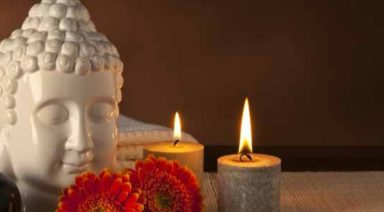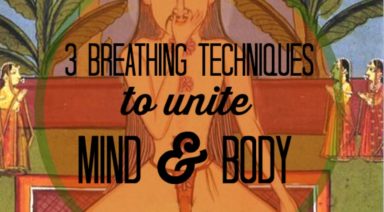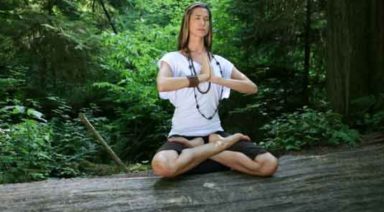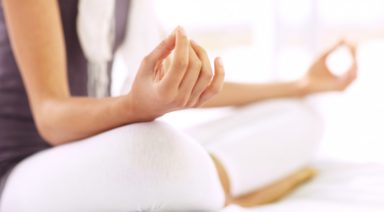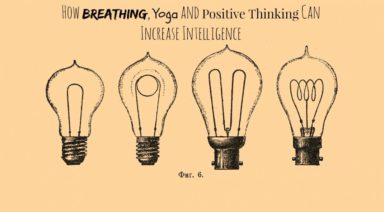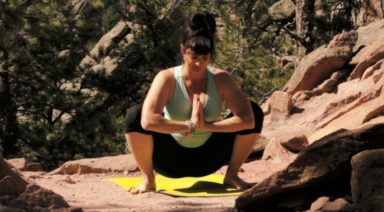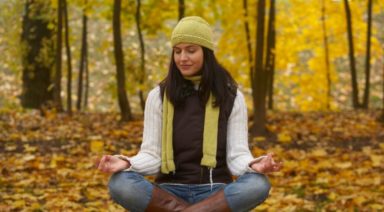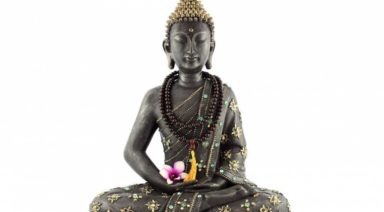The Benefits and Practical Steps of Meditation in Your Everyday

Silence befalls an ancient temple as rows of robed monks settle themselves, body and mind. Eyes closed, legs pulled up into a lotus position, the eye of the mind turns inward. For hours they remain; their minds disciplined to ponder like this for long periods of time. This is not a feat for the average person.
Perhaps when people utter the word meditation, this image stirs in the imagination. Indeed, meditation has been a part of spiritual and religious practice for as long as mankind has been recording history. It does take years of steady practice to hold such a state of mind for hours at a time. However, meditation is something that is not only easily accessible to anyone, but you may already be doing it without realizing it.
Meditation simply means to think, contemplate or ponder. Throughout the world, it holds many different names, but the idea is the same: to enter a state of mind where it is easy to focus upon one thing. If you have ever found yourself daydreaming for any length of time, you are meditating. If you found yourself captivated by a repetitive motion, the wheels and sound of a passing train for example, you were lulled into a meditative state. The same is true when you are reading a book and lose track of the time.
It is perfectly natural for your mind to slip into a trance and let the present moment go. When one intentionally practices meditation they engage in a discipline of training their mind and body. This practice can be applied to many different goals: relaxation, contacting spirits, building energy, enlightenment, self contemplation, or empty mind, just to name a scant few.
A simple meditation that anyone can do is a mindfulness meditation. In the place you are at this very moment, just look around. Notice everything that surrounds you. Pay attention to the colors, textures, shapes and lines. Then listen to all the sounds and pay close attention to every subtle nuance. Notice the smells, the air temperature and any sensory information you are receiving. Do not judge what you are perceiving; do not attempt to make any sense of it. Just for the moment, be aware of your breathing, the feeling of your feet touching the floor and bear witness to all that is surrounding you. Allow yourself simply to observe and become a part of the moment. This simple meditation can help you, in many ways.
There are many physical health benefits of a daily meditation practice including reduction in stress and anxiety-lowering stress hormones such as cortisol and adrenaline. These stress hormones can bog down the immune system making it harder to fend of illness. In addition, elevated stress levels have additional negative effects throughout the body. Practicing a relaxation meditation, regularly, may reduce or reverse these negative effects. As always, consult your doctor for any medical advice pertaining to you.
Make sure you consult the doctors of all time periods, too, from long-ago civilizations to present day. Timeless techniques from the Buddhists are just as viable today as they were hundreds of years ago. Yoga experts teach you both relaxation and movement meditations. Experts from scientific and business fields weigh in on their experience as to the benefit of meditation. No matter what you are seeking, or if you are looking to augment your practice, there is something to be gained.
No matter how you choose to do it, meditation can benefit all areas of your life. You can create your own peaceful sanctuary within your own being. Perhaps you want to improve your performance at work or in sports. In the depths of your mind you may find your own inner truth and life’s purpose. Maybe you are just seeking to improve the performance of your brain and mind. No matter how you approach it, or why you choose to meditation, there is no doubt that a regular practice can have overarching benefits throughout every aspect of your life.
Which Type of Meditation Style is Best For You?

While some may think that meditation requires nothing more than sitting silently, it isn’t necessarily as easy as it seems. The commitment needed to practice every day coupled with the challenge to empty your mind of everyday stressors can be discouraging. However, it doesn’t necessarily need to be.
Meditation has been scientifically proven to reduce stress and anxiety, improve health, and increase happiness. However, the most essential aspect of meditation is appealing to your spirit. It is an entirely subjective practice and there is no right or wrong way to meditate. By practicing every day and finding a style that compliments your soul – you’ll not only experience the joy in meditation, but you might just find you’re better at it then you thought!
The following is a list of the most common types of meditation. Discover which one speaks to you!
Types of Meditation
The following are the most common types of meditation styles. Before you begin, ask yourself a few questions:
- Do you find increased focus through movement?
- Does darkness help you to relax?
- Do you find sounds calming or distracting?
- Are you trying to focus your mind or empty it?
Answering these simple questions can help you to narrow down which type of meditation is most suited for you. If by the end of this article you still can’t decide – Why not try them all?





